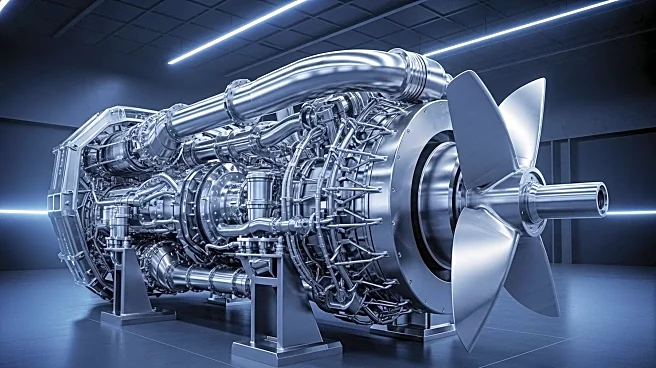What is the story about?
What's Happening?
Everllence has announced that an undisclosed Asian shipbuilder has ordered its propulsion packages for the construction of five 8,400 teu container ships. These vessels and engines will be built in China, featuring the Everllence B&W 6G80ME-GI Mk 10.5 main engine with proprietary EGRTC technology. The package includes auxiliary engines, a fuel gas-supply system, turbochargers, and EGR blowers. Bjarne Foldager, Head of Two-Stroke Business at Everllence, highlighted the ME-GI engine's low methane emissions and its role as a transition fuel for decarbonization. The ME-GI engine has gained acceptance in the market, with over 1,000 cumulative sales since its introduction in 2014.
Why It's Important?
The adoption of Everllence's propulsion packages for new container ships underscores the growing demand for efficient and environmentally friendly maritime solutions. The ME-GI engine's low methane emissions and compatibility with LNG as a transition fuel align with global efforts to reduce carbon footprints in shipping. This development is significant for the shipping industry, as it supports the transition towards more sustainable practices and enhances operational efficiency. The widespread acceptance of the ME-GI engine reflects its reliability and performance, potentially influencing future shipbuilding projects and industry standards.
What's Next?
As the container-newbuilding market remains active, Everllence may continue to see increased demand for its propulsion packages. The company might explore further innovations to enhance the efficiency and environmental performance of its engines. Shipbuilders and operators will likely monitor the performance of these new vessels closely, potentially leading to additional orders and collaborations. The success of this project could also encourage other companies to adopt similar technologies, accelerating the industry's shift towards sustainable shipping solutions.
Beyond the Headlines
The integration of Everllence's propulsion packages in new container ships may have long-term implications for the maritime industry. The focus on reducing emissions and improving fuel efficiency could drive regulatory changes and encourage investment in green technologies. This project highlights the importance of innovation in achieving sustainability goals, potentially influencing policy decisions and industry practices globally.















